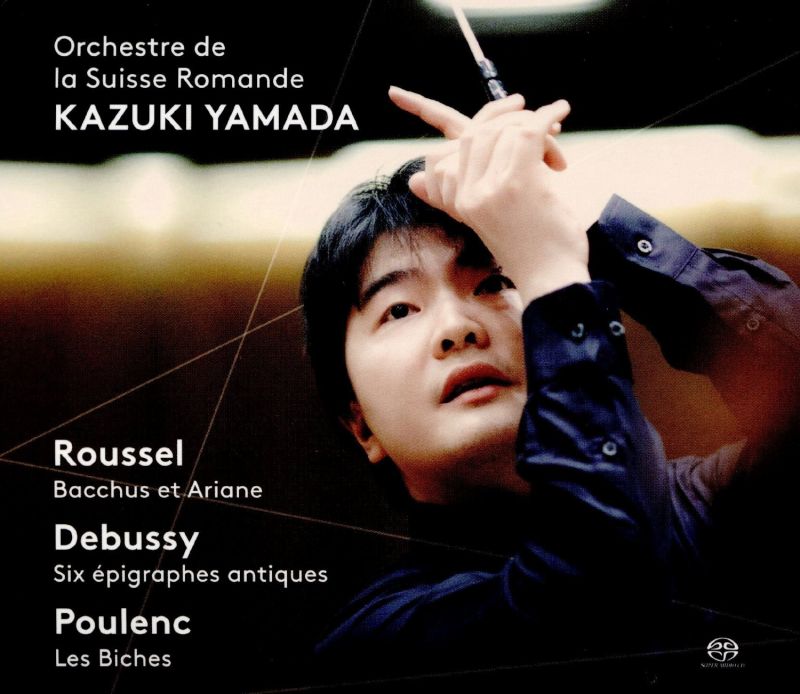ROUSSEL Bacchus et Ariane DEBUSSY 6 Epigraphes antiques
View record and artist detailsRecord and Artist Details
Composer or Director: Francis Poulenc, Albert (Charles Paul Marie) Roussel, Claude Debussy
Genre:
Orchestral
Label: Pentatone
Magazine Review Date: AW16
Media Format: Super Audio CD
Media Runtime: 75
Mastering:
DDD
Catalogue Number: PTC5186 558

Tracks:
| Composition | Artist Credit |
|---|---|
| Bacchus et Ariane |
Albert (Charles Paul Marie) Roussel, Composer
Albert (Charles Paul Marie) Roussel, Composer Kazuki Yamada, Conductor Suisse Romande Orchestra |
| (6) Épigraphes antiques |
Claude Debussy, Composer
Claude Debussy, Composer Kazuki Yamada, Conductor Suisse Romande Orchestra |
| (Les) Biches, Movement: Ballet Suite |
Francis Poulenc, Composer
Francis Poulenc, Composer Kazuki Yamada, Conductor Suisse Romande Orchestra |
Author: Tim Ashley
Some have seemingly questioned just how successfully Ansermet’s version, completed in 1939, mirrors Debussy’s own style and the booklet-notes argue that the instrumentation more closely approximates that of Ravel. It’s a work of sparse musical gestures, sensuous yet austere, rooted in a sequence of woodwind solos – flute, oboe, bassoon – surrounded and supported by string figurations and the sparest touches of orchestral colour. You can’t help but feel that Debussy (and Ravel, for that matter) would have been less unvarying. It’s nicely done though, with the OSR woodwind and strings playing with poise and Yamada controlling the narrow dynamic range with great skill.
The ballet suites that accompany it are more variable. Yamada’s way with Roussel is high-voltage if occasionally raw around the edges, which means that the First Suite from Bacchus et Ariane, with its motoric rhythms and relentless momentum, generates considerable excitement, and the Bacchanale that closes the Second becomes a real roller-coaster ride, with the OSR brass on thrilling form. Les biches, however, is oddly solid. The string sound – lean in Bacchus et Ariane – is rightly warmer here, and the Baroque inflections nicely to the fore. But it lacks wit, the Rag-Mazurka sags in the middle and the Andantino is metronomic and unyielding. It’s beautifully played, but not as good as the versions by Prêtre, Désormière or Frémaux.
Discover the world's largest classical music catalogue with Presto Music.

Gramophone Digital Club
- Digital Edition
- Digital Archive
- Reviews Database
- Full website access
From £8.75 / month
Subscribe
Gramophone Full Club
- Print Edition
- Digital Edition
- Digital Archive
- Reviews Database
- Full website access
From £11.00 / month
Subscribe
If you are a library, university or other organisation that would be interested in an institutional subscription to Gramophone please click here for further information.




